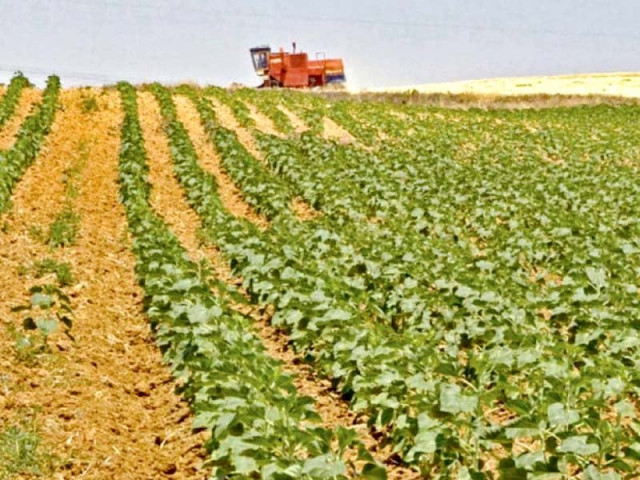Stakeholders express reservations over Punjab’s agriculture policy draft
Policy proposes dual regulation for seed companies on different grounds

SAP president said Pakistan is on the path of becoming self-sufficient in producing seeds for various crops, citing examples of maize, rice and vegetables. PHOTO: FILE
The businessmen are of the view that the new policy, commissioned under the Pakistan Tehreek-e-Insaf (PTI) led government does not ensure a level playing field for domestic consumers. They believe that it will benefit multinational companies working for the province.
No reported case of polio in Punjab since 2017: health minister
The policy proposes establishment of a new institution, the Punjab Seed Registration and Regulation Authority (PSRRA), in consultation with federal and other provincial governments for consistency of methods. PSRRA will be comprehensive in its ability to permit companies to pursue “enlistment” and be subject to a truth in labelling system.
Under the truth in labelling the obligation to maintain seed quality will be shifted to private companies to develop and test varieties and self-report their characteristics on label. The claims on label will be checked by PSRRA and fines and other sanctions can be imposed for false claims.
Proposing such a parallel regulation system in Punjab for the same sector, when the federal government is already controlling the seed business, will create undue hassle for the seed industry. It will be counter-productive and such proposals have already been rejected by stakeholders in previous meetings. The proposed reforms in seed sector are against the interest of farmers and local seed producers, the stakeholders lamented.
Speaking at a meeting convened by Punjab Agriculture Department for reviewing draft agriculture policy 2018, stakeholders said it has been an established fact that seed development, manufacturing, marketing, exports and imports are a federal subject.
The draft agriculture policy proposes dual regulation for seed companies on different grounds. It is a discrimination that multinational seed companies are proposed to sell seed in truthfully labelled packing while local companies are advised to go through a stringent trail and registration process. Instead, only the sale of certified seeds should be allowed.
All companies should be asked to undergo stringent multi-tier seed trial and certification process, said Seed Association of Pakistan (SAP) President Shafiqur Rehman.
He added that Pakistan is on the path of becoming self-sufficient in producing seeds for various crops, citing examples of maize, rice and vegetables.
25 model agriculture markets on cards in Punjab
Vehari Chamber of Commerce and Industry President Asif Ali appreciated the formulation of agriculture policy. He welcomed the government’s move of establishing market committees with the consultation of business community.
However, he criticised introduction of GM seed in the country, saying that only traces of GMOs were found from the rice export consignments but country had to pay heavily due to imposition of ban by various countries. He also strongly opposed any idea of introducing GM food in the country.
Published in The Express Tribune, October 26th, 2018.
Like Business on Facebook, follow @TribuneBiz on Twitter to stay informed and join in the conversation.


















COMMENTS
Comments are moderated and generally will be posted if they are on-topic and not abusive.
For more information, please see our Comments FAQ